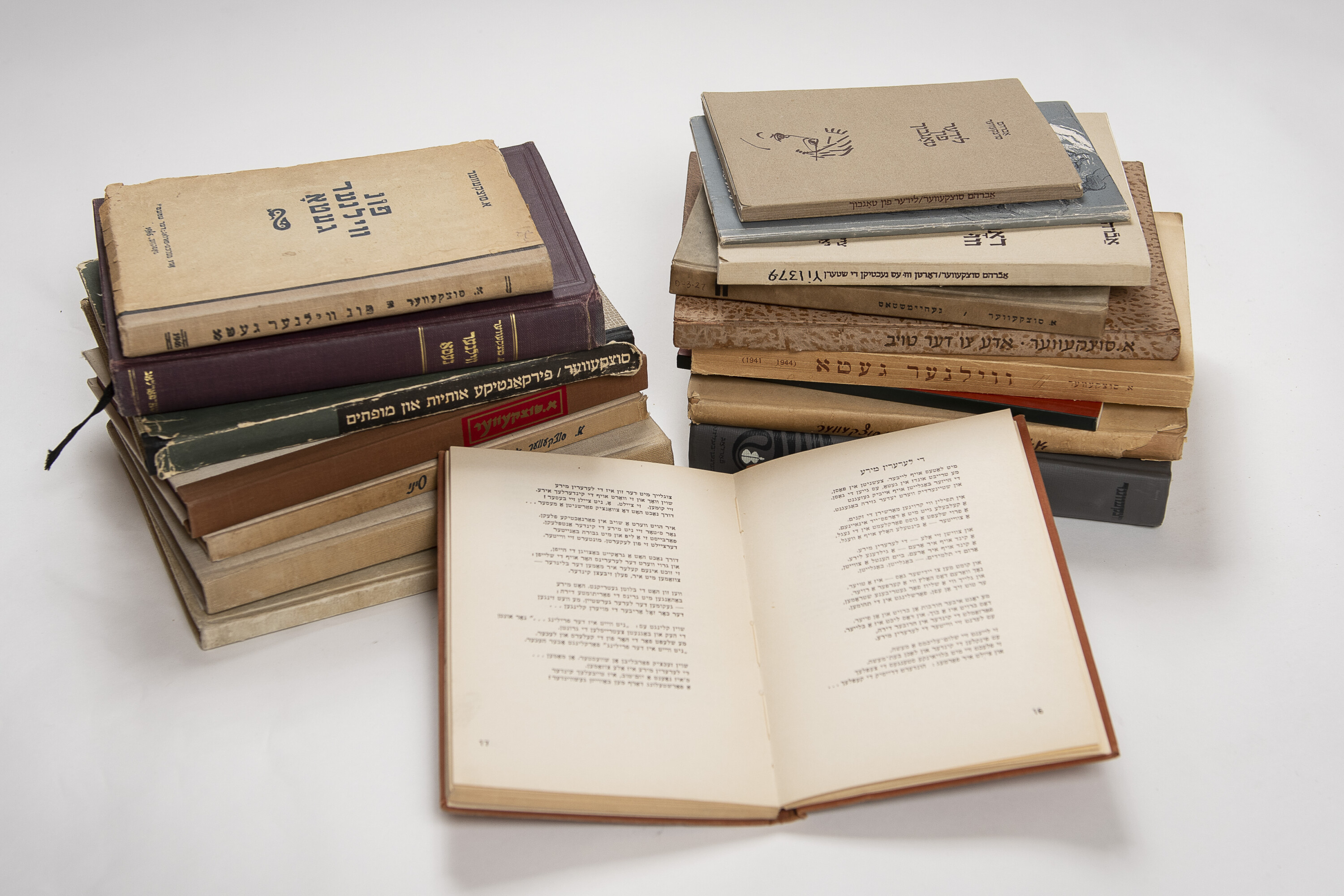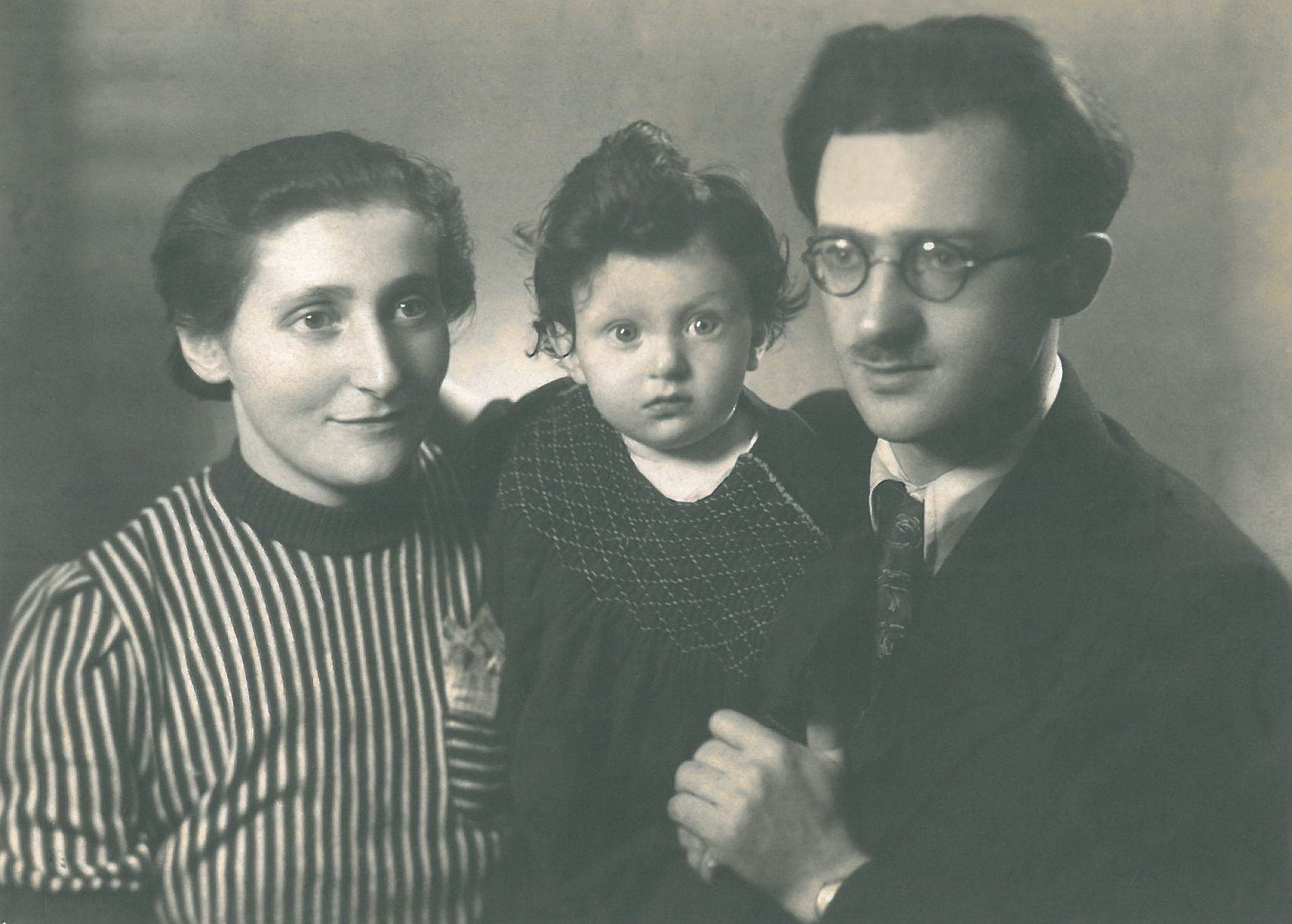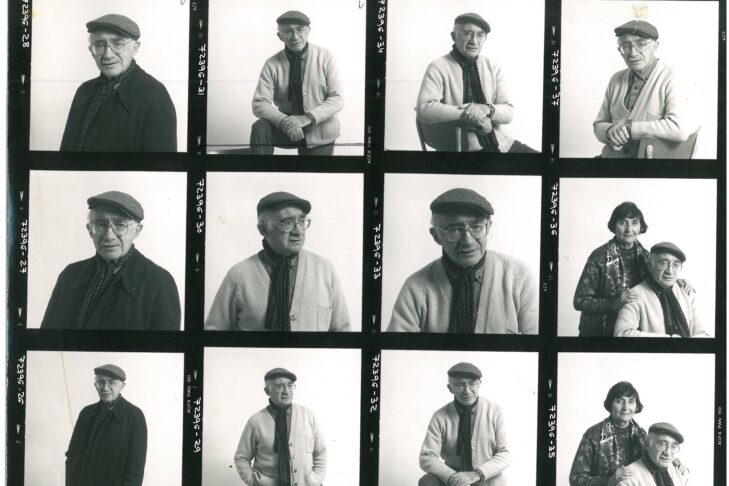In a groundbreaking development, the Yiddish Book Center has produced a documentary film about a vital yet forgotten Yiddish poet—Avrom Sutzkever—in hopes of giving him the greater recognition he deserves.
“Who Will Remain?” (or “Ver Vet Blaybn?”) is making its world premiere this month at the Miami Jewish Film Festival. Co-directors Christa Whitney and Emily Felder used a variety of rare primary sources to make it.
“It’s been many years that we’ve been working on this,” Whitney said, dating the project to 2014. “To have it finally go out into the world is just thrilling.”
“[Some] in the audience may already know about Avrom Sutzkever,” she added. “We think the film might appeal to them [and] reveal new things about him.” She also hopes that “people who have never heard of him, who never had an interest in Yiddish, will find something compelling in this film. We hope they get curious and maybe check out the Yiddish Book Center’s resources.”
Felder, a graduate of UMass Amherst, recalls first learning about Sutzkever when she came to work at the Yiddish Book Center and heard that “this man was the greatest poet of the Holocaust.”
Sutzkever’s life spanned nearly a century and reflected the tumult of the era. During the Holocaust, he and his family were confined to the Vilna Ghetto. The poet and his wife, Freydke, escaped, and he joined the partisans. Later the couple was rescued by the Soviets and brought to the USSR. He testified against the Nazi leaders of the Vilna Ghetto during the Nuremberg trials, with the film showing his gripping appearance before the tribunal. Despite—or because of—the war, he kept writing poetry, including the work that gives its title to the film.
The film incorporates videos of Sutzkever’s granddaughter, Israeli actress Hadas Kalderon, making a return to present-day Vilnius, Lithuania. She saw sites such as the Ponar Forest, where 100,000 people, including 70,000 Jews, were murdered by the Nazi occupiers and their collaborators from 1941 to 1944. Kalderon also directed a dramatization of Sutzkever’s short story “The Twins” at the Vilnius Theater and spoke at the Lithuanian parliament.

“Who Will Remain?” even includes footage of Sutzkever reciting his poems and discussing his craft.
“To us, it was just critical we tried to include this amazing audio of him reciting his own poetry, trying to find as much footage as we could of him on video speaking in the first person about his life,” Whitney said.
The filmmakers bring diverse backgrounds to their collaboration. Whitney is not Jewish but has been interested in Yiddish since studying Yiddish literature and Holocaust literature—including Sutzkever—at Smith College as an undergraduate. Felder is Jewish and comes from an Ashkenazi family. Her grandparents spoke Yiddish. Whitney and Felder met at the Yiddish Book Center, where Whitney is the director of its Wexler Oral History Project and Felder worked for the project as an editor and videographer after graduating from UMass Amherst. Now Felder is on the West Coast, continuing her film career with aspirations to become a geologist and planetary scientist.
When Whitney was first learning Yiddish while doing field work at the Yiddish Book Center, she would listen to CDs of Sutzkever’s poems on long drives across New England. His poem “A Vogn Shikh” (“Wagon of Shoes”) particularly resonated with her.
“It’s a very moving poem,” Whitney said. “It’s about the shoes taken off those murdered in the Holocaust. There’s a rhythm in the poem. You almost hear the wheels of the wagon, turning almost like a train.”
Felder said the poem of the film’s title is “probably my favorite.” She described it as “at once just very transcendental and also oddly funny.”
“Who will remain? What will remain?” the poem asks, as translated in the film. The poem’s narrator answers in the final line: “What will remain? God will remain. Is that enough for you?”

“To me,” Felder said, this response “speaks to Jewish humor. It’s such a serious poem, very existential, beautiful.” Yet, she said, “it kind of has a punchline at the same time. It’s so Jewish, almost untranslatable.”
The Yiddish Book Center has made documentary short films in the past, but “Who Will Remain?” represents its first feature-length work. The filmmakers found a narrator in Harvard professor Ruth Wisse, a scholar of Yiddish literature and comparative literature. In addition to the audio and video footage they found, they incorporated images of artwork from Marc Chagall and Franz Marc, even from Sutzkever himself, including a self-portrait.
Sutzkever was raised not only in Vilna, but also in Siberia, with the latter destination contributing to his lifelong love of nature. After his family returned to Vilna, he applied for membership to a group for budding artists, “Young Vilna” (“Yung Vilne”), and was accepted on his second attempt.
In the Vilna Ghetto, the Sutzkevers’ newborn baby was tragically murdered immediately after birth, and Sutzkever also endured the loss of his mother. The poet and his wife escaped in 1943.
The Sutzkevers lived on the run before their rescue by the Soviets. At the Nuremberg trials in 1945, Sutzkever was the only Soviet witness called to testify on behalf of the Jews, specifically about their mass extermination in Vilna, according to the film. Later he left the Soviet Union for what would become the State of Israel.
As the film notes, Sutzkever had a complex relationship with his new country. He founded the first Yiddish-language literary quarterly in Israel, Di Goldene Keyt, and was awarded the Israel Prize in 1985. However, the government of Israel adopted a policy that favored Hebrew over Yiddish as a language and Sutzkever preferred to write in Yiddish, so much so that he stayed at the helm of Di Goldene Keyt for almost a half-century, until it ceased publication in 1995. The film explains that his long-standing reluctance to have his work translated may have resulted in a loss of awareness about him, in contrast to contemporaries such as Isaac Bashevis Singer or Sholem Asch.
Today, the filmmakers hope their film will reignite interest in Sutzkever.
“It is so surreal and so humbling,” Felder said. “I just remember the initial conversations about it, the two of us discussing it. Finally, there’s something…other people can enjoy [to] get an education about the Yiddish language and Sutzkever. It’s just so amazing.”
“Who Will Remain?” screens at the Miami Jewish Film Festival through April 29, with an accompanying virtual talk featuring filmmakers Christa Whitney and Emily Felder, Avrom Sutzkever’s granddaughter Hadas Kalderon, and moderator Deborah Briggs, who founded the arts and cultural programming at the Miami Beach hotel The Betsy. Find more information here.



